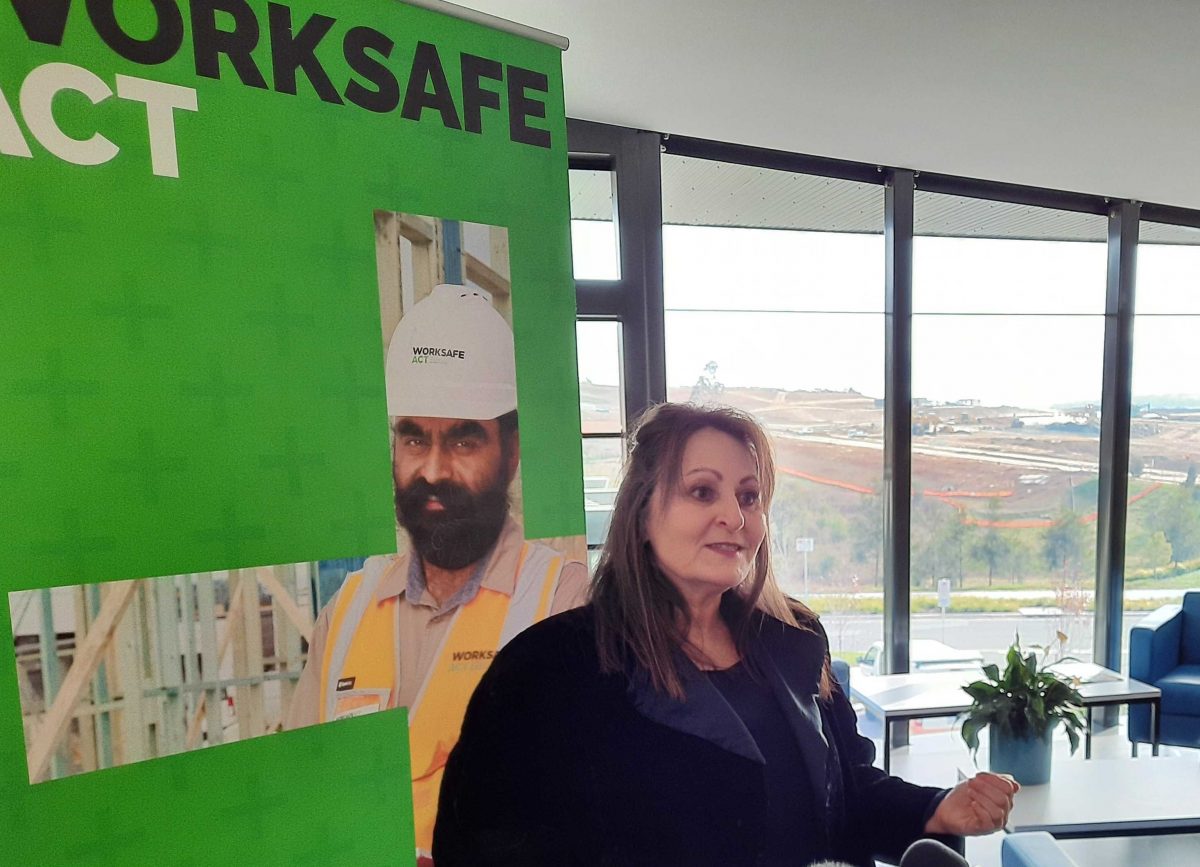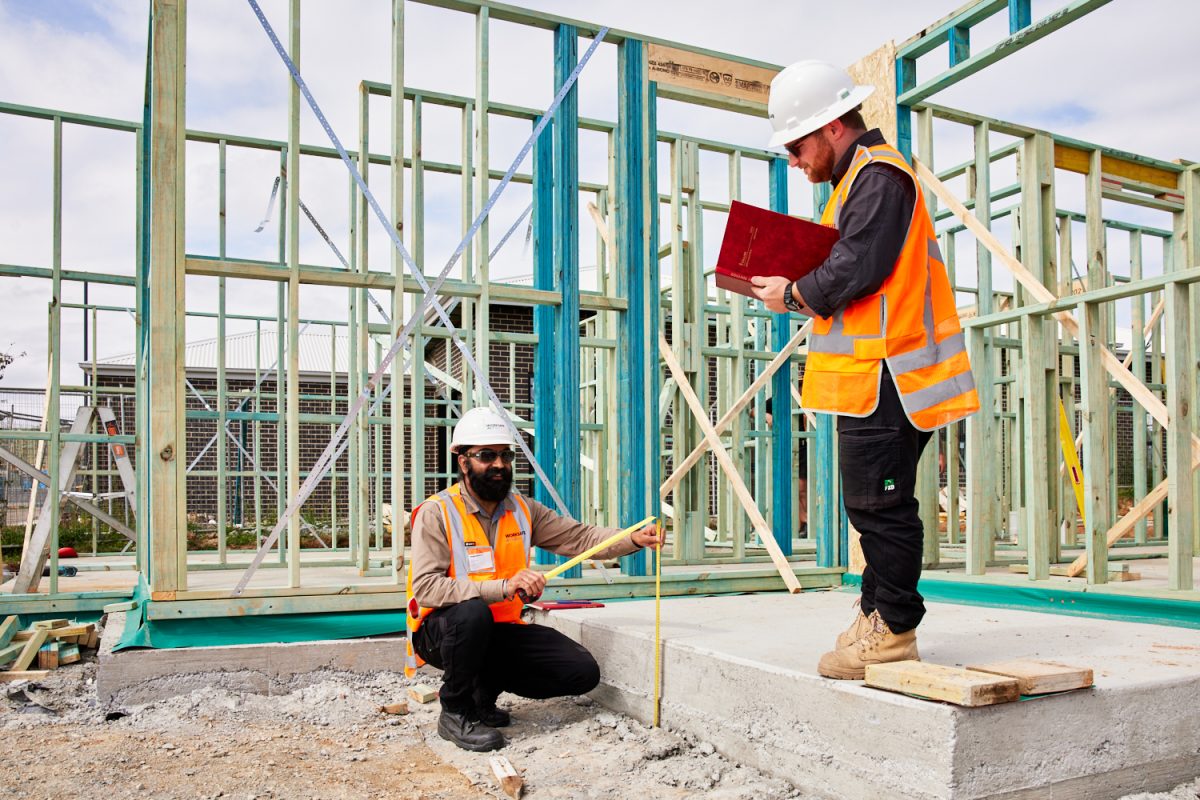
WHS Commissioner Jacqueline Agius has been leading WorkSafe ACT since April 2020. Her five-year term ends next year. Photo: Ian Bushnell.
The ACT body charged with keeping workers safe is itself facing accusations of tolerating a toxic workplace, including bullying and harassment, inadequate training and the flouting of public service procedures and values.
Region has sighted a letter dated 24 May 2023 from CPSU National President Brooke Muscat to Damian West, then Deputy Director General of the Office of Industrial Relations & Workforce Strategy, listing a litany of alleged workplace failings at WorkSafe ACT and asking for intervention.
In November 2023, former WorkSafe inspector Leith Dawes initiated action in the Federal Court alleging he was sacked after complaining about the regulator’s own workplace culture.
He is claiming $400,000 compensation for financial loss and “hurt, humiliation and distress”.
That matter is set down for mediation in mid-July, but Region can confirm that concerns about WorkSafe’s culture have been circulating for years.
Multiple sources paint a picture of an understaffed agency with high staff turnover, where bullying and harassment are common, a lack of training means work is done without the necessary skills, and inspections are conducted to achieve unofficial quotas, particularly in the construction sector.
One former staff member who lasted seven months told Region that anyone who questioned office practices would be isolated and forced out.
In 2022, they witnessed three high-level staff leave the organisation in one week.
The former staff members wish to remain anonymous because they are still employed in the public sector or may want to return to the public sector.
In the letter, Ms Muscat said the CPSU had raised multiple concerns about identified psychosocial hazards WorkSafe staff were exposed to, but measures to deal with them had been ineffective and the issues remained unresolved.
She alleged a pattern of poor workplace culture and change management, including:
- The misuse of Preliminary Assessments [used to assess alleged inappropriate workplace behaviour or misconduct] without basis and as a punitive tool resulting in serious and ongoing psychological harm.
- Obfuscating merit selection processes regarding hiring senior employees
- Inadequate training for all staff resulting in staff not being fully qualified or supported to fulfil their compliance and regulatory roles and responsibilities
- Inadequate support mechanisms regarding exposure to occupational violence
- Failure to adhere to public service policies, procedures, values and behaviours.
Ms Muscat called on the office to commit to investigating psychological safety across WorkSafe ACT, including a review of the safety systems in place to mitigate risk to workers.
She wanted the office to tell WorkSafe ACT staff this would be occurring and how they could contribute to the investigation and review.
She also sought a meeting with CPSU representatives to discuss and develop a path forward to ensure WorkSafe ACT was meeting its obligations to staff.
Comment was sought from the CPSU, but it is understood little changed as a result of the letter.

Inspectors on a building site. There have been claims that WorkSafe had inadequate training. Photo: WorkSafe ACT.
Region first became aware of problems at WorkSafe in August 2023 when a former employee claimed in an email that they had witnessed a systematic toxic culture and bullying at all levels within WorkSafe ACT, including an inspector being forced out.
They alleged the inspector had been pressured to alter an inspection report to match a colleague’s and, when they refused and complained about the team leader, were told that if they didn’t like it, they could leave.
“[They] suffered physically and mentally as a result of the ongoing bullying and were deprived of accessing flexible working arrangements to pressure [them] out of the workplace,” the former employee said.
“This inspector was essentially treated as a rostered worker, in breach of the enterprise agreement.”
In 2023, about a dozen staff left in the space of six months, the former staff member said.
There were also allegations that Prohibition Notices were not followed up as lawfully required, leaving workplaces shut down, with complaints to management going nowhere.
The other former staff member who left after seven months said that during the blitz on construction sites, the pressure was on to accumulate as many Prohibition and Improvement Notices as possible to present an image of activism in the media.
Staff were pulled from all areas of the office in order to inspect sites and write as many notices as possible, despite many being unqualified and untrained, they said.
All they needed to be able to write a notice was to be in the presence of an inspector.
They also said some staff did not know how to close off a notice or follow through, which left builders hanging.
On the other side, some would not know what they were looking for and could overlook safety hazards.
“The most common penalty notice or charge is in training and instruction, and we were failing our own,” they said.
“I could see that someone was going to be in trouble one day.”
The former staff member had spent 25 years in a public sector organisation that was the subject of a Royal Commission but said WorkSafe was much worse.
“It was a nightmare. Working there made that [other organisation] look like a holiday home. It was pretty bad,” they said.
They said organisational change caused rifts in the workplace that exploded into “stand-up blues” and “pushing and shoving”.
It was impossible to make a complaint because the person you complained to would be the one who investigated it.
The former staff member had enough experience to be able to “push back” successfully but, in the end, decided to leave a dysfunctional workplace.
In the Federal Court case, Mr Dawes says that he was bullied from the time he started at WorkSafe in March 2023. He claims that after he complained directly in a 28 May email to Commissioner Jacqueline Agius, he was handed a probation report recommending the termination of his employment.
He subsequently spent time in hospital due to mental health reasons.
WorkSafe says in its defence that Mr Dawes’ claims did not meet the threshold of workplace bullying as defined in the Fair Work Act.
It did appoint an investigator to examine Mr Leith’s complaints. The report was given to Commissioner Agius in late July.
However, Mr Dawes was sacked on 23 August for what WorkSafe decided was “serious misconduct” based on “cumulative behaviour” that was “inconsistent with the ACT Public Service”.
Industrial Relations and Workplace Safety Minister Mick Gentleman said in response to questions about the court case that he visited Worksafe ACT last week and the morale there was “quite high”.
“I have every confidence in Jacqueline Agius and her team,” he said.
Original Article published by Ian Bushnell on Riotact.









